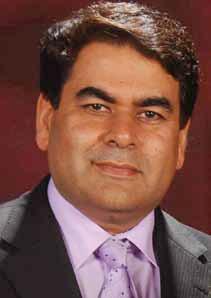 |
“There is a lot of scope for a tablet to show its importance in the education,” says Sandeep Arya, MD, Amtrak Info System & Amtrak Group. He is a seasoned veteran with an experience of over two decades in the IT sector. He also presided as Chairman at Presto Infosolutions (P) Ltd and Data Gold Softwares (P) Ltd. He is on the Executive Committee of The Association of British Scholars and an active member of the European Business Group, the British Business group, FICCI, ASSOCHAM and CII. Recently, he has also been appointed as the General Secretary of the Telecom Industries Services Association (TISA). In conversation with Pragya Gupta, ENN |
Please share the genesis of Amtrak Info Systems.
Amtrak Technologies Ltd is a customised solutions provider company incorporated in 1991 that specialises in IT, Audio-Visual, Electronics and Communications solutions. Amtrak has recently entered into the segment of producing user-friendly technology products, with its newly presented ‘My Buddy’. Started in the year 2012, Amtrak Infosystems believes in bringing about a change in the age of technology by introducing that was never seen before. Amtrak Info System aims at bringing more comprehensible products and support services to its customers with its presence growing pan-India.
Our aim is to make our path-breaking technological solutions accessible to maximum users across India by tapping on its business network in the market. Our designing team is situated in Singapore while two manufacturing units are located in China.
Our business model targets every medium that can sell ranging from the traditional B2B, Channel medium to reach out to customers and Online Selling. The underlying principle is to produce innovative product line-ups that benefit customers as per their requirements. The company’s core strength lies in designing its products in-house with the utmost creativity. It emphasizes on manufacturing hi-tech products at an affordable range.
How do you see the role of ICT in Education?
ICT definitely sees a clear path in the education segment. India is highly receptive to technology at every industry, and when technology innovations are aimed at providing ease, there is pure success to it. ICT has already begun in spreading its wings in the education segment by introducing some of the most innovative ideas for bringing education closer to learners. With the already emerging ideas of ICT in Education, such as, smart teaching aids, virtual class room and classboard, there can be seen immense scope for many more such IT innovations to be introduced.
How do you see the importance of tablets in education?
A tablet must not be just seen advancement to a laptop or desktop, but there’s a lot more to it. With its quality of being light-weight and ‘on the go’, a tablet can be your book, your sketch book, your blackboard, and even your classroom. There is a lot of scope for a tablet to show its importance in the education sector.
How does your solution integrate with today’s classrooms?
We are yet to define a package of solutions for the education segment, but we aim at bringing a complete innovation when we present our education tablets. This will be a true benefit for the students where the student will actually feel the importance of its My Buddy as much as his or her books.









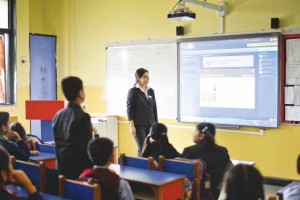 Shalomhills International School, Gurgaon
Shalomhills International School, Gurgaon Metros continue to be a potential market in eCommerce, but the real growth will come from small cities, says Manoj Chandra, Founder & CEO, AllSchoolStuff.com, in conversation with Pragya Gupta, ENN
Metros continue to be a potential market in eCommerce, but the real growth will come from small cities, says Manoj Chandra, Founder & CEO, AllSchoolStuff.com, in conversation with Pragya Gupta, ENN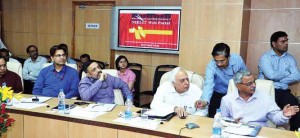



 ICT Tools in the school
ICT Tools in the school
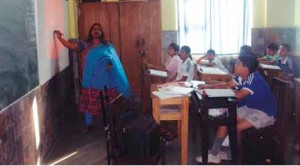 The school is using ICT solutions from E beam. The overall objective of deploying the solutions was to initiate a more technological and interactive approach to teaching. It allows the educator to pursue reactive teaching. It makes the visuals more effective means of retention than the methods deployed before. The main factors for a successful implementation of these tools is the availability of basic technology, which allows such an access. Apart from material factors, it also requires the basic know how on the operational level to ensure wider usage of this tool as an important resource provider.
The school is using ICT solutions from E beam. The overall objective of deploying the solutions was to initiate a more technological and interactive approach to teaching. It allows the educator to pursue reactive teaching. It makes the visuals more effective means of retention than the methods deployed before. The main factors for a successful implementation of these tools is the availability of basic technology, which allows such an access. Apart from material factors, it also requires the basic know how on the operational level to ensure wider usage of this tool as an important resource provider.
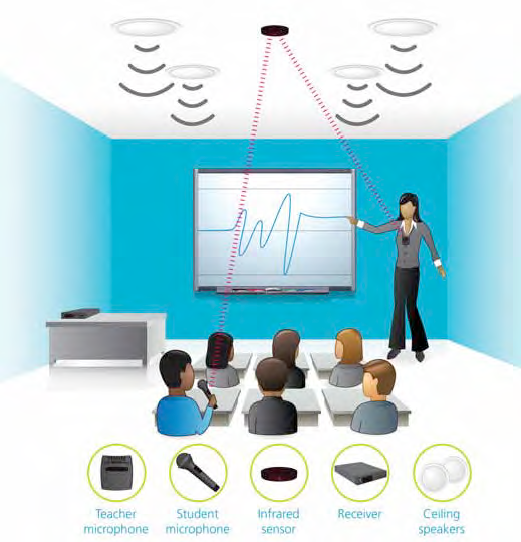
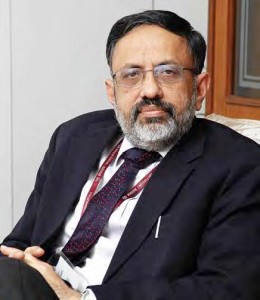

 India has the largest aspirational society on this planet and this is a manifestation of the courage, knowledge and enthusiasm of its youth and the enterprise of its business leaders. Young generation will be an integral part of this aspirational society and will be engaged in generating economic wealth and creating social harmony to build an India of the 21st Century,” said Kamal Nath, President, IMT
India has the largest aspirational society on this planet and this is a manifestation of the courage, knowledge and enthusiasm of its youth and the enterprise of its business leaders. Young generation will be an integral part of this aspirational society and will be engaged in generating economic wealth and creating social harmony to build an India of the 21st Century,” said Kamal Nath, President, IMT











